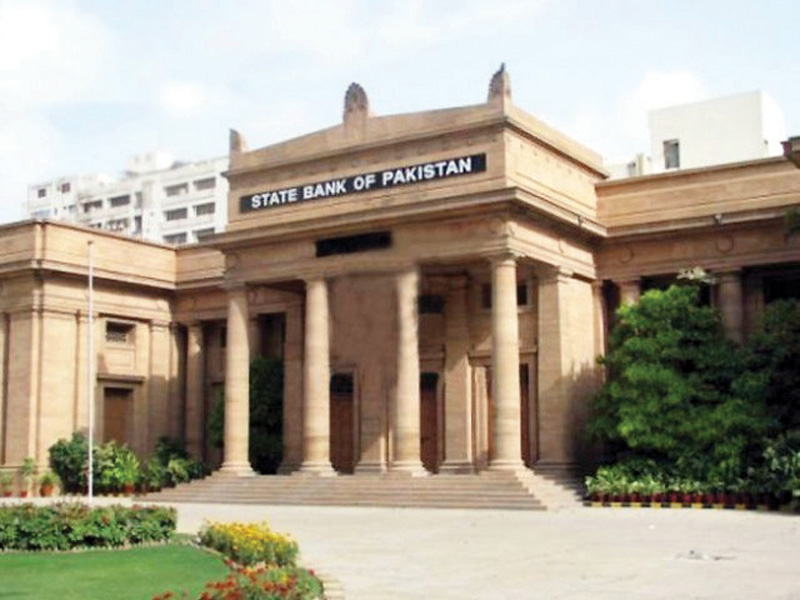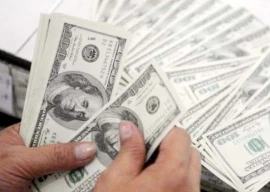
Pakistan’s central bank is scheduled to meet on Friday (Jan 22) to determine the benchmark interest rate for the next two-month amid a situation whereby the second wave of Covid-19 pandemic still poses risk to economic activities.
Moreover, the government has increased power tariff by Rs1.95 per unit to resume the International Monetary Fund’s (IMF) loan programme. It has also passed on hike in international oil prices on to the local consumers. The current account balance, after remaining in surplus for the previous five successive months (Jul-Nov 2020), also turned negative in December 2020. Experts, however, believe inflation is manageable.
Traditionally, the central bank increases the benchmark interest rate to control inflation, decreases the rate to let economic activities ramp up or leaves the rate unchanged if there is found a balance between the prevailing rate of inflation and economic activities.
Earlier, the State Bank of Pakistan (SBP) cut the benchmark interest rate by an aggressive 625 basis points during March-June 2020 to the current 7%. With this, the market strongly believes the rate has bottomed out and expectation for increase in the rate is gradually gaining momentum, as real interest (prevailing interest rate minus inflation reading) rate still stands near zero or in negative.
However, experts and analysts have largely anticipated the central bank to leave the rate unchanged on Friday for the third time in a row to help businesses avail cheaper loan from banks and support economic activities in Pakistan, as inflation seems manageable going forward but the pandemic is yet to be overcome.
Alpha Beta Core (ABC) CEO Khurram Schehzad anticipated the central bank would maintain a status quo in the interest rate, “as economic growth has just began and local investment through TERF (temporary economic refinance facility which is a subsidised loan for new businesses and expansion of existing ones) is picking up with exports improving.”
“We need growth the most at present, so have to keep capital costs low for an extended period. Inflation is primarily food driven and stabilising. Currency parity has also achieved some equilibrium. So overall, a stable interest rate policy would be appropriate,” he said.
“We expect (the first) increase in policy rate by 100 basis points in May/Jul 2021,” Topline Securities CEO Muhammad Sohail said in a commentary.
The brokerage house conducted a poll to discern market expectation for the monetary policy statement (MPS) and said expectation for increase in the rate was gradually on the rise compared to its previous poll conducted in November.
“We believe change in views towards increase in policy rate of the participants is owing to likely restoration of IMF programme over the next couple of weeks wherein energy tariffs are likely to be adjusted upwards and rising international oil and commodity prices (sugar, scrap, palm oil etc).”
A total of 94 participants took part in the latest poll, compared to 72 in November 2020 poll. “Of the 94 participants, 75% expect no change in the policy rate in the Jan 22, 2021 MPS. Around 88% expected no change in Nov-2020 poll. About 19% of the participants are expecting increase in policy rate. 10% are expecting increase of 100-150bps. In the last poll, only 7% of the participants were expecting an increase in policy rate,” it said.
With respect to monetary tightening in 2021, 58% of the participants expect monetary tightening to begin in 1H2021 (12% in Jan, 21% in Mar and 25% in May). 26% expect monetary tightening to begin in 2H2021, while 17% do not anticipate a rate hike in 2021.
“Despite strong pick-up in aggregate demand as indicated by high frequency demand indicators, we believe it may still be premature for the SBP to increase interest rates, as the second wave continues and the overall economic situation seems stable. Expansionary monetary policy has been vital in supporting economic recovery,” Taurus Securities Head of Research Mustafa Mustansir said.
Tangent Capital Advisors CEO Muzammil Aslam said, “No change in the interest rate. Surplus current account (in first half; Jul-Dec of FY21) and no borrowing from SBP will keep inflationary expectations lower. Current inflation is cost push led by food shortages and more administrative than monetary phenomena.”
BMA Capital Saad Hashmi said SBP is expected to maintain status quo in interest rates for now. “Inflationary pressures have come down and January is lily to see a low number. On the other hand, the current account deficit for December is higher and not sustainable.”
Meanwhile, AHL Research Head Tahir Abbas said that SBP would leave the rate unchanged at 7%. “Inflation is expected to remain contained in short- to mid-term as food inflation is easing off. Also, the economy is currently hit by the second wave of the pandemic, therefore, reviving the aggregate demand remains a challenge.”
Aba Ali Habib Senior Research Analyst Zubair Jatoi said that with the January 2021 inflation reading expected to dip below 6%, LSM data still showing elementary recovery in the first five months and the risk of second wave of Covid-19 still intact, “the SBP’s monetary policy committee may vote to maintain the policy space in order to act at a time when the central bank sees strong evidence of underlying inflationary pressure due to rising commodities prices and robust domestic demand”.
Published in The Express Tribune, January 22nd, 2021.
Like Business on Facebook, follow @TribuneBiz on Twitter to stay informed and join in the conversation.

1672385156-0/Andrew-Tate-(1)1672385156-0-405x300.webp)
















COMMENTS
Comments are moderated and generally will be posted if they are on-topic and not abusive.
For more information, please see our Comments FAQ